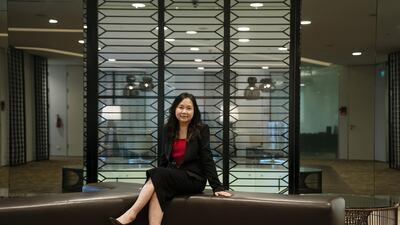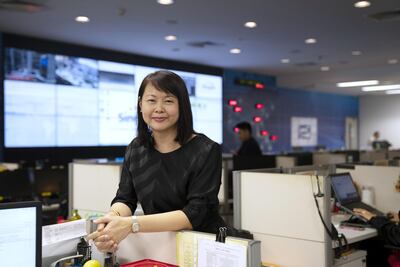Women managers and executives are in big demand in Asia, which makes keeping the ones you’ve got even more crucial.
Still, as of April 2018 women held only one in four positions at the manager level and higher in Asia, a McKinsey report shows. That compares with more than one in three at companies in the US and Europe, according to Catalyst, a nonprofit organisation that advises firms on diversity and inclusion.
“Whilst it is encouraging to see more female executives breaking into the C-suite as new entrants in these ranks, their compensation may sometimes be less than their more experienced male counterparts who have already been in the C-suite for some time,” said Malini Vaidya, partner and Asia-Pacific head at Spencer Stuart, a management consulting firm. “Hopefully that gap will erode as they gain experience and seniority.”
Here are some lessons learned from interviews with women executives at firms in Asia:
Remove stigma of family leave
Problem: It’s no secret that women are often the primary caretakers of children and elderly parents. This leads a good number in Asia - especially after having a baby - to leave the workforce, some for a few months, others for years. Getting them back at work can be a tricky proposition.
Eng-Kwok Seat Moey was faced with this dilemma, twice, with both of her children. Her Singapore employer DBS Group, South East Asia’s largest lender, allowed her to take leave without pay for a total of about five years to look after her children when her husband was posted overseas for work in North America.
She took the first sabbatical in 1995 when her husband relocated to Canada. When she started the leave, she was employed by POSBank, which had become part of DBS by the time she returned. DBS honoured the sabbatical and asked her to help with integration. Then, one year after helping DBS introduce Singapore’s first real estate investment trust in 2002, Ms Eng-Kwok decided to be with her family when her husband was posted to San Francisco for two years. She submitted her resignation to Eric Ang, her manager at the time and the company’s head of capital markets.
“I thought it’s not good for the company to keep the headcount for me for two years,” said Ms Eng-Kwok, who appreciated how Mr Ang supported her with tailor-made solutions. “Straight away he said: 'Why do you want to quit? Why don’t you take a sabbatical?'”
She became Mr Ang’s deputy in 2013 and the following year, Ms Eng-Kwok succeeded him as head of the bank’s capital-markets division, nine years after returning from her second leave.
Today, Ms Eng-Kwok makes sure her team can take time off for personal reasons rather than risk losing talent, a sentiment echoed by the bank’s chief executive Piyush Gupta.
“If you don’t make it a stigma, then it’s not a stigma and women come back to work,” Mr Gupta said.
Move beyond stereotypes about family obligations
Problem: Women often are overlooked for promotions or travel to career-building opportunities as employers assume they’re tied down by their family obligations.
Balaka Niyazee relocated several times over her 19-year career with Procter & Gamble. Having worked in India, Ireland, South Korea and most recently Singapore, she asked for at least half a year of lead time before moving at every turn. The early discussions and advance notice allowed her to broach the subject with her husband so he could make arrangements with his company.
_______________
Read more:
Despite the rhetoric, female CEOs still a rarity in US
Expo 2020 Dubai backs global crop of women innovators
_______________
“It’s really hard for a company to give you six months of lead time because everything can change,” Ms Niyazee said. “But the way the company handled that was to tell me about all the possibilities even if they weren’t confirmed, and I didn’t hold them accountable if those things didn’t happen.”
Ms Niyazee initially joined P&G as a sales representative in India. Since then, she has held senior roles in sales and business development, taking charge of P&G’s brands for oral care, feminine care products and razors. She moved back to Seoul in October with her husband and eight-year-old daughter to become vice president of Procter & Gamble Korea.
“Women want to make it happen and they want to have a career. The last thing we should do is assume they aren’t going to be able to be flexible,” she said.
Find and promote role models
Problem: In male-dominated industries, women often struggle to have their voices heard, let alone aspire to join high-level management. It can be awfully lonely at the top when you’re the only one.
That doesn’t fly at Singapore Telecommunications (Singtel), the largest company in Asia led by a woman: chief executive Chua Sock Koong. The mobile phone operator has three more female executives on its 11-person management team, including chief financial officer Lim Cheng Cheng.
To Hoo Shu Yee, a former engineer who now heads a team that provides connectivity services to companies, having women at the top has helped to shatter the glass ceiling at Singtel.
“We know we can do it too if they can,” she said. “That knowledge is very empowering.”
Ms Hoo began her career at Singtel in 1993 when “everyone was an engineer” and “females were rare and few”.
Within a few years, Singtel began a shakeup that included courting bankers and experts from various industries to join the company, in a bid to better mirror their client profiles. That also meant bringing in more women and ensuring an environment where equal chances are given to both genders.
“I’ve never felt that there was a limit to how far I could go,” she said.
End ‘traditions’ that are no longer useful
Problem: Sometimes it’s not about breaking the glass ceiling. It’s about taking charge and doing something that no one has done.
Pinky Mehta was the first woman in her family and community to become a certified accountant, and she did it by the time she was 20. Ms Mehta joined the Aditya Birla Group in 1991 where she currently leads the finance charge at Aditya Birla Capital.
She says support was key from her husband, who was flexible when she needed him to be, and from superiors who let her take time off. The group didn’t have many maternity benefits in 1995 when Ms Mehta had the first of her two daughters, so her manager came up with innovative work arrangements. “My boss asked me initially to come to work for just two hours, then three hours and gradually increased it to a full shift,” Ms Mehta said. “You need ample support so that there’s no guilt.”
The mantra for work-life balance is more about sticking with priorities rather than balancing, Mehta said. “You just need to prioritise. Think: where do I need to be now?”




